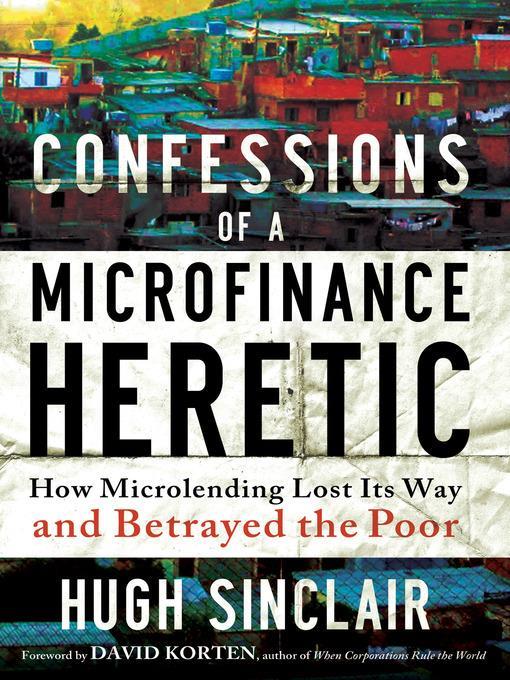
Confessions of a Microfinance Heretic
How Microlending Lost Its Way and Betrayed the Poor
کتاب های مرتبط
- اطلاعات
- نقد و بررسی
- دیدگاه کاربران
نقد و بررسی

May 14, 2012
In this arresting exposé of the microfinance industry, economist and consultant Sinclair argues that while the idea of ending world poverty via small, low-cost loans to the poor (to allow them to start profitable businesses) is a noble one, it has been derailed by greed and “hijacked by profiteers.” Intending to spur investors and regulators to action, Sinclair shows that within this $70 billion industry, many microfinance programs are nothing more than predatory lending schemes rebranded as socially responsible investment opportunities. Sinclair covers the history of the microfinance industry from its founding by Nobel Prize winner Muhammad Yunus through the present day. Microfinance, Sinclair argues, fails its founding premise: interest rates are (by Western standards) usurious and loans are used to maintain life rather than encourage a leg up out of poverty—loans are almost invariably spent on household items, repaying loans, paying other bills, or generally consumed. As Sinclair explains, “The benefits of the loan quickly disappear, but the debt remains.” Meanwhile, Sinclair’s stories from his days working in the microfinance industry are told with almost cinematic flair.

August 1, 2012
Former investment banker and microfinancier Sinclair draws from his personal experience to pen this part-memoir, part- expose. Formerly an anonymous source to the New York Times, revealing corruption in the microfinance industry, Sinclair here details the history and lack of regulation in microfinance. The idea of microfinance was developed by Nobel Prize-winning economist Muhammad Yunus, who saw it as a way to provide low-cost loans to help the poor start businesses. But the concept quickly morphed into a multibillion-dollar industry plagued by predatory lending practices. Most loans have ended up being used for living expenses and repaying preexisting bills. Meanwhile, most businesses that received these loans have failed, in the process incurring insurmountable debt and leading to unethical collection methods, with at times tragic results. Economist and former Harvard Business School professor David Korten contributes a foreword, and the book is enhanced by extensive notes and references. VERDICT Recommended for readers intrigued by financial scandal, this is also a good companion to Milford Bateman's Why Doesn't Microfinance Work?: The Destructive Rise of Local Neoliberalism.--Lisa Felix, Mishawaka-Penn-Harris P.L., IN
Copyright 2012 Library Journal, LLC Used with permission.

























دیدگاه کاربران